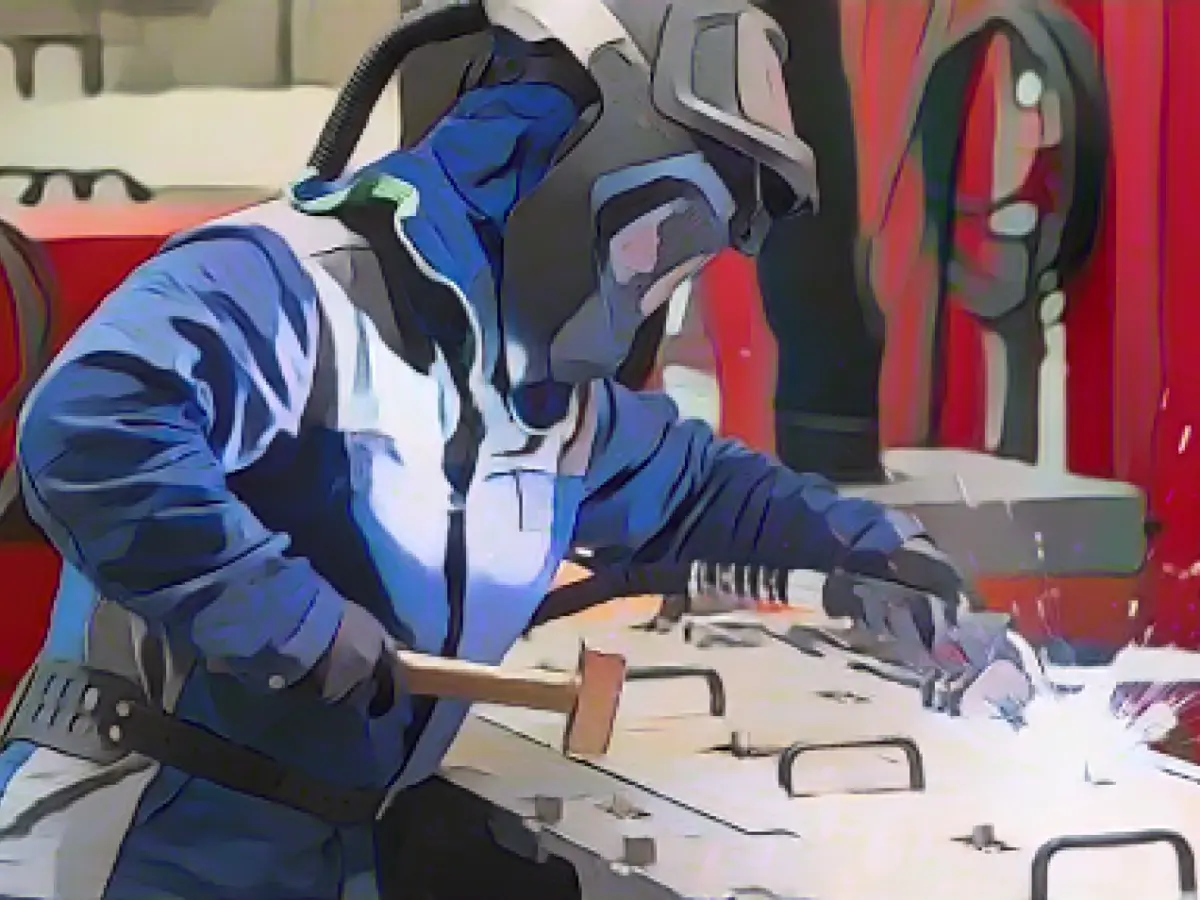Economic situation - Incoming orders in German industry fall sharply
Incoming orders in German industry fell sharply in October. Compared to the previous month, 3.7 percent fewer orders were received, according to the Federal Statistical Office in Wiesbaden. By contrast, analysts had expected a slight increase of 0.2 percent on average.
The development was burdened by a lack of large orders. If this component is excluded, orders would have increased by 0.7 percent. In addition, the increase in total incoming orders in the previous month was subsequently revised upwards from 0.2% to 0.7%. In a three-month comparison, which is less susceptible to fluctuations, orders fell by 4.6%.
Incoming orders continued their downward trend, commented the Federal Ministry of Economics in Berlin. Excluding the development of large orders, the order volume has been stagnating since spring. A sustained recovery in the industrial economy is therefore not expected until next year.
Economist: Companies will have to reduce production
In detail, fewer orders for intermediate and capital goods such as machinery were received in October. In contrast, more consumer goods were ordered than in the previous month. While domestic demand rose by 2.4 percent, orders from abroad fell by 7.6 percent.
Bank economists emphasized the negative impact of the lack of large orders. These had strengthened the result in the previous month. "So far, many companies have compensated for the lower order intake by working off their order backlogs," said Commerzbank economist Ralph Solveen. "In the long term, however, they will not be able to avoid reducing their production, which suggests that the German economy will continue to shrink in the winter half-year."
The German economy contracted slightly in the summer quarter from July to September. If a further decline follows in the final quarter, we could be talking about a technical recession - in other words, a decline in economic output for two consecutive quarters.
Read also:
- Why there is still no EU funding for green Saar steel
- Politicians at a loss after shock news
- Court of Auditors criticizes the state government's debt plan
- Wind and solar: grid costs to be distributed more fairly
- Despite the negative trend in incoming orders, German analysts had predicted a slight increase in October, indicating a more optimistic view of the economic situation in the industry.
- The Federation of German Industries, based in Wiesbaden, Germany, attributed the decrease in incoming orders to a lack of large orders, affecting various sectors of the industry, including machinery production and consumer goods.
- According to Commerzbank economist Ralph Solveen, the decrease in large orders will inevitably lead companies to reduce their production, which could exacerbate the economic situation and potentially contribute to a shrinking German economy during the winter half-year, as suggested by bank economists.
Source: www.stern.de








